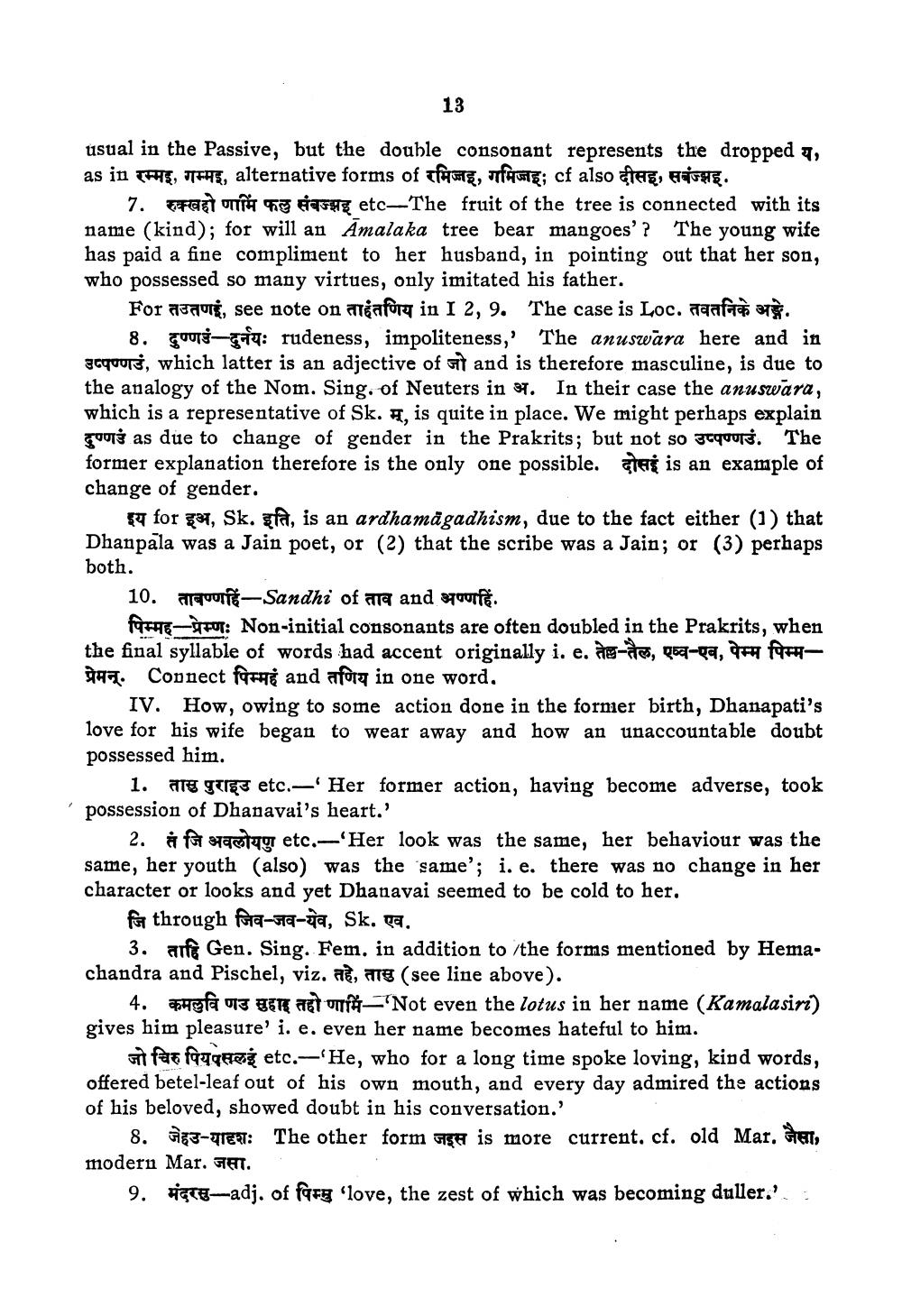________________
13
usual in the Passive, but the double consonant represents the dropped, as in रम्मइ, गम्मइ, alternative forms of रमिज्जइ, गमिजह; cf also दीसह, सबंज्झइ.
7. रुक्खहो णामि फलु संबज्झइ etc - The fruit of the tree is connected with its name (kind); for will an Amalaka tree bear mangoes'? The young wife has paid a fine compliment to her husband, in pointing out that her son, who possessed so many virtues, only imitated his father.
For तउतणहूं, see note on तातणिय in I 2, 9. The case is Loc. तवतनिके असे. 8. rudeness, impoliteness,' The anuswara here and in acq, which latter is an adjective of and is therefore masculine, is due to the analogy of the Nom. Sing. of Neuters in . In their case the anuswara, which is a representative of Sk., is quite in place. We might perhaps explain दुण्ण as due to change of gender in the Prakrits; but not so उप्पण्णउं. The former explanation therefore is the only one possible. is an example of
change of gender.
for, Sk. fa, is an ardhamāgadhism, due to the fact either (1) that Dhanpala was a Jain poet, or (2) that the scribe was a Jain; or (3) perhaps both.
10. ताबण्णहिं - Sandhi of ताव and अण्णहिं.
f: Non-initial consonants are often doubled in the Prakrits, when the final syllable of words had accent originally i. e. तेल्ल-तैल, एव्व - एव, पेम्म पिम्मप्रेमन्. Connect पिम्महं and तणिय in one word.
IV.
How, owing to some action done in the former birth, Dhanapati's love for his wife began to wear away and how an unaccountable doubt possessed him.
1. are guge etc.-' Her former action, having become adverse, took possession of Dhanavai's heart.'
2.
f
g etc.-'Her look was the same, her behaviour was the same, her youth (also) was the same'; i. e. there was no change in her character or looks and yet Dhanavai seemed to be cold to her.
जि through जिव - जव-येव, Sk. एव.
3. a Gen. Sing. Fem. in addition to /the forms mentioned by Hemachandra and Pischel, viz. a,
(see line above).
4. of 3 at of Not even the lotus in her name (Kamalasiri) gives him pleasure' i. e. even her name becomes hateful to him.
fafaqqu etc.-'He, who for a long time spoke loving, kind words, offered betel-leaf out of his own mouth, and every day admired the actions of his beloved, showed doubt in his conversation.'
8. जेहउ - यादृश: The other form जइस is more current. cf. old Mar. जैसा, modern Mar. जसा.
9.
adj. of fag 'love, the zest of which was becoming duller.'




